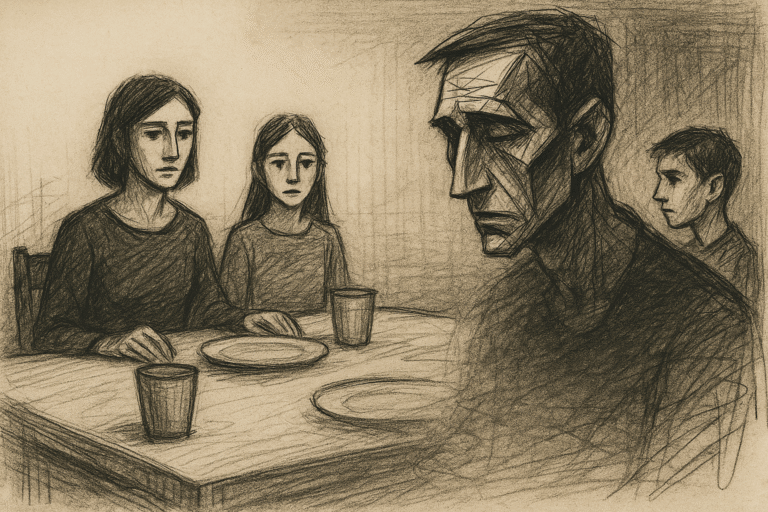Top 10 Mental Health Myths Debunked
Introduction to Mental Health Myths
Mental health myths can lead to misunderstandings and stigma surrounding mental health conditions. The “Top 10 Mental Health Myths Debunked” highlights common misconceptions that can hinder individuals from seeking help or understanding mental health challenges. It’s crucial to differentiate between fact and fiction to foster a supportive environment for those affected. By debunking these myths, we can promote awareness and encourage open conversations about mental health, ultimately leading to better understanding and treatment options.
Common Misconceptions about Therapy
One common misconception about therapy is that it is only for individuals with severe mental health issues. In reality, therapy can benefit anyone, regardless of the severity of their situation. Many people seek therapy for everyday stress, relationship issues, or personal growth. Another myth is that therapists will simply tell clients what to do; however, therapy is a collaborative process where clients are guided to discover their own insights and solutions. Additionally, some believe that therapy is only effective for a short period, but in truth, therapy can be a long-term journey that provides ongoing support and coping strategies. Finally, there’s a myth that discussing feelings in therapy will always make things worse. In contrast, expressing emotions in a safe space can be incredibly healing and lead to positive outcomes.
Understanding Mental Illness
Stigmatizing Beliefs and Their Impact
Many stigmatizing beliefs about mental health persist, contributing to the misconceptions outlined in the “Top 10 Mental Health Myths Debunked.” One prevalent myth is that mental illness is a sign of weakness. This misconception can discourage individuals from seeking help or admitting they are struggling, causing further isolation. Another belief is that mental health issues are rare or only affect certain demographics; in reality, mental health conditions can affect anyone, regardless of age, gender, or background. Additionally, some think that people with mental illnesses are inherently dangerous, but studies show that individuals with mental health disorders are more likely to be victims of violence rather than perpetrators. Debunking these myths is essential for promoting understanding and empathy, allowing for a more supportive community for those facing mental health challenges.
The Impact of Stigma on Treatment
The “Top 10 Mental Health Myths Debunked” addresses critical misconceptions that hinder effective treatment and understanding of mental health issues. One prevalent myth is that mental health problems are simply a result of personal failure or lack of willpower. In truth, mental health conditions are complex and influenced by a combination of genetic, biological, environmental, and psychological factors. Another myth suggests that therapy is only for “crazy” people, when in fact, therapy can benefit anyone, regardless of the severity of their issues. Additionally, there is a belief that mental health disorders are not real illnesses, which undermines the significant impact they have on individuals’ lives. The myth that medication is the only solution is also common; however, therapy and lifestyle changes can be equally effective. Lastly, the idea that mental health issues are a phase that people will outgrow can be dangerous, as it may prevent individuals from seeking necessary help. By debunking these myths, we can create a more informed and compassionate approach to mental health.
Separating Facts from Fiction
The “Top 10 Mental Health Myths Debunked” sheds light on widespread misconceptions that can obstruct understanding and support for mental health issues. One myth is that mental illness is rare, when in fact, a significant portion of the population experiences some form of mental health challenge. Another common belief is that therapy is only for those with severe conditions, while it can be beneficial for anyone seeking personal growth or coping strategies. Many people also think that medications are the only effective treatment for mental health problems; however, therapy, lifestyle changes, and holistic approaches can be just as impactful.
Additionally, there’s a notion that individuals with mental illnesses are violent, but research shows they are more often victims of violence than perpetrators. Another myth is the misconception that all mental health issues are hereditary, ignoring the role of environmental factors. It’s also believed that discussing mental health issues will worsen them, while open conversations can actually promote healing and support. Many assume that children cannot experience mental health problems, but conditions like anxiety and depression can manifest in youth. Lastly, some people think that recovery from mental illness is quick and straightforward, which is often not the case, as it can require time, patience, and ongoing support. By addressing these myths, we can foster a more understanding and supportive community for mental health.
The Importance of Mental Wellness
The “Top 10 Mental Health Myths Debunked” provides crucial insights into misconceptions that can harm individuals struggling with mental health issues. One prevalent myth is that mental illness is a sign of weakness; however, it is a complex condition influenced by various factors, including biology and environment. Another common belief is that therapy is only for those with severe problems, when in fact, it can be beneficial for anyone seeking support or personal growth. Many people think that medication is the sole solution for mental health issues, but therapy and lifestyle changes can also play a significant role in recovery. Additionally, the misconception that mental health disorders are rare overlooks the reality that they affect a large segment of the population. There’s a belief that people with mental health issues are dangerous, but studies show they are more likely to be victims than perpetrators of violence. Another myth is that discussing mental health will exacerbate problems; in reality, open dialogue can lead to healing and understanding. Many assume that children cannot experience mental health issues, but conditions like anxiety and depression can affect even young individuals. Lastly, the idea that recovery is quick and linear is misleading, as mental health journeys often involve challenges and require ongoing support. By debunking these myths, we can foster a more compassionate and informed view of mental health, encouraging individuals to seek the help they need.
Myths surrounding Medication
The “Top 10 Mental Health Myths Debunked” aims to clarify prevalent misconceptions surrounding mental health and promote a better understanding of these issues. One common myth is that mental illness is a sign of personal weakness; in reality, mental health disorders are complex conditions influenced by various factors, including genetics and environment. Another misconception is that only certain demographics are affected by mental health issues, when in fact, anyone can experience mental illness regardless of age, gender, or background. Many believe that therapy is only for severe cases, but it can be beneficial for anyone seeking support for everyday challenges. Additionally, there’s a myth that medication is the only effective treatment, while therapy and lifestyle changes can also yield positive results. The assumption that discussing mental health problems will make them worse is misleading; open conversations often lead to healing. Furthermore, some think that mental health issues are rare, but statistics show they are quite common. The belief that people with mental health disorders are inherently violent is also false; they are more often victims than perpetrators. Lastly, many people assume that recovery from mental health issues is quick and straightforward, when in fact, it can be a long-term journey requiring support. By addressing these myths, we can foster a more informed and empathetic approach to mental health.
10 Surprising Truths about Mental Health
Addressing Stigma and Misunderstanding
The “Top 10 Mental Health Myths Debunked” seeks to challenge and correct widespread misconceptions that perpetuate stigma and misunderstanding about mental health. One prevalent myth is that people with mental health disordersare dangerous; in reality, they are more likely to be victims of violence than aggressors. Another common belief is that mental illness is a sign of weakness, but it is a complex interplay of genetic, environmental, and psychological factors. Additionally, many individuals think that seeking help is unnecessary for minor issues; however, early intervention can prevent more severe problems later on. There’s also a misbelief that therapy is only for those with severe mental illnesses, which undermines its value for anyone needing support. Furthermore, some people assume that mental health conditions are not real illnesses, ignoring the scientific evidence that shows their legitimacy and impact on daily functioning. The idea that medication is the only viable treatment fails to acknowledge that therapy, lifestyle changes, and support networks can also be highly effective. Moreover, many think that mental health issues only affect adults, overlooking the fact that children and adolescents can also experience significant struggles. Lastly, the notion that recovery is immediate is misleading; mental health journeys often involve ongoing management and support. By debunking these myths, we can create a more inclusive and supportive environment for those affected by mental health issues.
Conclusion and Moving Forward
The “Top 10 Mental Health Myths Debunked” serves to clarify common misconceptions that often hinder understanding and support for those affected by mental health issues. One prevalent myth is that mental health problems are a sign of weakness; in reality, they are complex conditions influenced by various factors, including genetics and environment. Another misconception is that only certain demographics are affected by mental health issues, while in fact, individuals across all age groups and backgrounds can experience these challenges. Many people also believe that therapy is only for severe cases, but it can provide valuable support for anyone dealing with stress or personal growth. Additionally, the myth that medication is the only effective treatment overlooks the importance of therapy and lifestyle changes. Another commonly held belief is that discussing mental health will worsen the situation, when open conversations can actually promote healing. Many people assume mental health issues are rare, but statistics show they are quite common. There’s also a misguided belief that those with mental health disorders are inherently violent, whereas they are more often victims than perpetrators. Some think that only adults can face mental health struggles, ignoring that children can also be significantly affected. Lastly, there’s a notion that recovery is a quick process, while in reality, it can take time and ongoing support. By debunking these myths, we can foster a greater understanding of mental health and encourage individuals to seek help without fear of stigma







